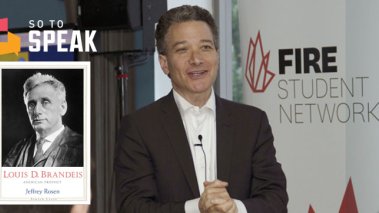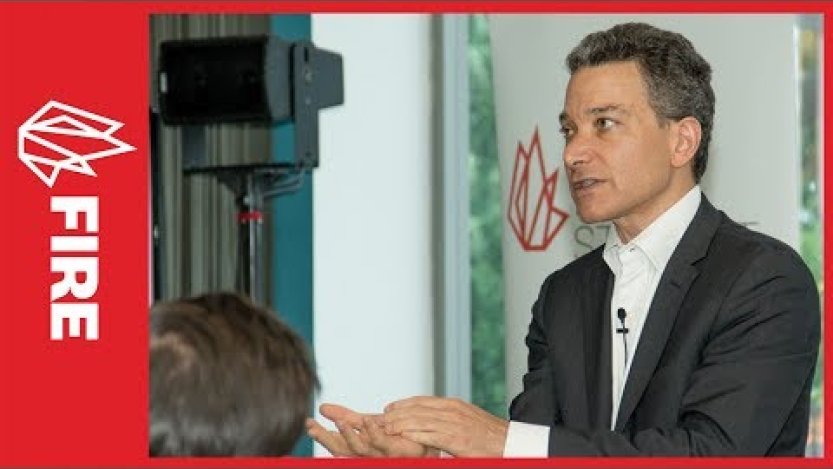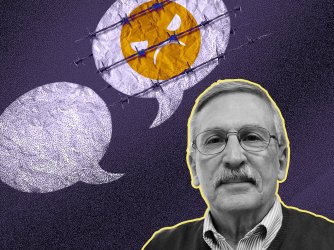Table of Contents
So to Speak podcast: The life and legacy of Supreme Court Justice Louis Brandeis with Jeffrey Rosen

During the summer of 1919, U.S. Supreme Court Justice Louis Brandeis changed his mind about free speech.
Earlier that year, he voted to uphold the conviction of Charles Schenck for opposing the military draft. A year later, he was the lone dissenter in a case dealing with nearly the same issue. In 1927, he wrote what some consider to be the greatest defense of free speech ever penned by a Supreme Court justice in the case Whitney v. California.
Why did Brandeis change his mind?
On today’s episode of So to Speak: The Free Speech Podcast, we explore the life and legacy of Brandeis with National Constitution Center President and CEO Jeffrey Rosen. Last year, Rosen wrote the book “Louis D. Brandeis: American Prophet,” which explains how Brandeis came to be one of free speech’s most eloquent advocates.
You can subscribe and listen to So to Speak on iTunes, Google Play, and Stitcher, or download episodes directly from SoundCloud.
Stay up to date with So to Speak on the show’s Facebook and Twitter pages, and subscribe to the show’s newsletter at sotospeakpodcast.com.
Have ideas for future shows? Email us at sotospeak@thefire.org.
Have questions you want us to answer during an upcoming show? Call them into our voicemail inbox at 215-315-0100.
SHOW NOTES:
- Here is Jeffrey Rosen’s keynote address at the 2017 FIRE Student Network Conference:

- Here is a link to the Riley v. California (2014) phone wallpaper that Rosen and I discuss during the podcast.
Recent Articles
FIRE’s award-winning Newsdesk covers the free speech news you need to stay informed.

Should the First Amendment protect hate speech?
In America, hate speech is generally protected by the First Amendment. But should it be? Today's guest is out with a new book, "." W. Wat Hopkins is emeritus professor of communication at Virginia Tech, where he taught communication law and...

Here’s what students need to know about protesting on campus right now

Kansas takes a stand for intellectual freedom
